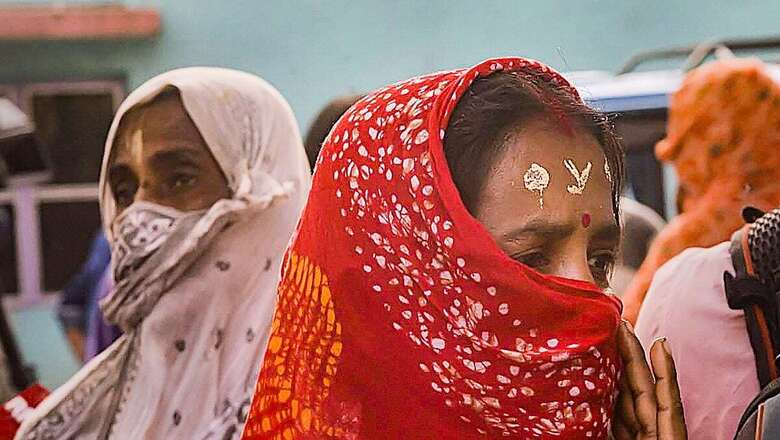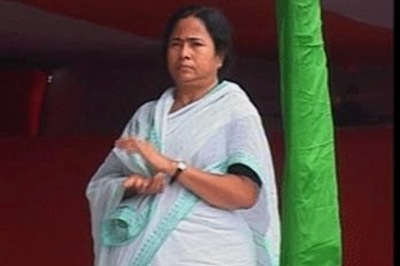
views
Prior to January 5, 2024, Sandeshkhali was a relatively unfamiliar village nestled in the suburbs of West Bengal. However, the village burst into national spotlight when personnel from the Enforcement Directorate (ED) were heckled, attacked and their vehicles vandalised by supporters of a certain Sheikh Shahjahan. The ED sought to question Shahjahan in connection with an enormous Rs 10,000 crore Public Distribution System (PDS) scam, involving the siphoning off of subsidised food grains and their illegal sale in the open market between 2012 and 2021.
Earlier, in October 2023, the ED had arrested State Minister Jyoti Priya Mallick, which eventually led them to this relatively remote village, located 75 km from Calcutta, to interrogate Shahjahan regarding transactions amounting to Rs 2,000 crore routed through Dubai via Bangladesh.
The ED was attacked despite them having informed the local police station in Bongaon. The police in Kolkata under the Trinamool Congress-run government also filed a case against the ED for breaking into Shahjahan’s residence, while the accused was on the run.
It doesn’t take a rocket scientist to discern something deviously amiss in shielding Shahjahan. Even if the state machinery is not complicit in his disappearance, they are certainly to be held responsible for encouraging it. As a consequence of these events, what came to light in the public domain was the apathetic plight of women who became casualties of TMC politics and sexual violence in Bengal.
The ED raid exposed Bengal’s darkest secret when women in Sandeshkhali came forward, armed with sticks, brooms and farming tools, vociferously protesting against the TMC strongman and his aides, alleging institutional rape of marginalised and voiceless women. The protesting women demanded the arrest of Shahjahan’s aides, Shiba Prasad Hazra and Nurul Islam also known as Uttam Sardar.
Ever since the suffering and shrieks of the desolate women surfaced onto the public domain, all we’ve seen the government do is either defend the absolutely indefensible or deflect the issue under the pretext of whataboutery. On social media especially, the brazen hypocrisy of the many pro-TMC voices was flabbergasting as they resorted to mindless whataboutery, downplaying the fiasco, while raking up cases of violence or injustice against women in other parts of India (mostly BJP-ruled states).
What was more shocking about it was that many of the advocates of such a narrative were well-respected women. Their arguments had one summary – everybody is doing it, so why the focus on this institutionalisation of rape coming to light. It is said that “rape has often been described as an unpreventable evils of war – the unfortunate consequence of men taking advantage of chaos”. India’s conscience must take into account that West Bengal is not in a state of a conventional war, but one where the once oppressed has now become the oppressor.
This fiasco wouldn’t have blown out of proportion if the TMC, along with the state enforcement agencies, which sadly has lost all credibility and face, would have simply come out and tried to defuse the situation at its very inception by pushing for Shahjahan to be arrested at any cost and themselves demanded for a joint investigation to provide relief and assurance to the victims. Yes, there would have been the obvious political mudslinging from the various state opponents like the Left, Congress and of course the BJP, but nothing damaging to the credibility of the TMC and its leaders.
By unreasonably blaming the victims and accusing them of being RSS workers/ political affiliates of the opposition, the TMC has proven its quality of politics.
On February 20, as the Calcutta High Court ordered the removal of Section 144 imposed, paving the way for Suvendu Adhikari, Leader of the Opposition from the BJP, to visit ground zero at Sandeshkhali, a new controversy erupted when social media and TV media went abuzz with viral clips of SP Jaspreet Singh (IPS 2016 batch) yelling at Agnimitra Paul, MLA from Asansol, accusing BJP workers of calling him a Khalistani.
The social media yet again forgot all about the plight of the women and began to call out the BJP and Adhikari. This was just the opportunity TMC members were looking for to swerve the attention from a pressing issue to one that is based on pure conjectures as of now, as there was no clear and coherent evidence available of Adhikari using expletives against Singh. Those irked by these hypothetical diatribes must not let this episode downplay and deflect the attention from the women who are at the centre of a very unforgiving episode of their lives. Sure, if Adhikari is proven to have used those words against the serving officer, he should be booked under the relevant law, which he himself has demanded at a press conference later in the evening.
With the farmers’ protest looming high at the corridors of Delhi, in a jiffy, everyone seemed to have forgotten about Sheikh Shahjahan or the incompetence of the West Bengal Police which has failed to apprehend the main protagonist at the centre of this mayhem for over 50 days.
The fact remains that political violence has been a problem in Bengal for generations, and Sandeshkhali is just the tip of the iceberg regarding the growing problems of the TMC. Shahjahan is one of many influential strongmen who switched allegiance from the Left to the TMC when the winds changed in favour of the latter post-Singur and Nandigram.
In Bengal, women belonging to political opposition have tragically become the first casualties in political violence. We must remember the infamous statement by TMC MLA and Bengali film superstar Tapas Paul, who once threatened to rape women who would vote for the Left. Others include the WB CM’s reaction to the 2012 Park Street rape victim, dismissing the story as media hyperbole “cooked up to malign the government”, or calling the victim a sex worker. More recently, in 2022, she trivialised the rape of a 14-year-old minor girl, brutally gang-raped by the son of a TMC leader and his friends in Nadia’s Hanskhali, by calling it an “unplanned pregnancy gone wrong”.
Watching the horror story of Sandeshkhali unfold is tragic. Despite people’s horror, they are far from demanding hard accountability from the TMC government, playing into their strategy of deflection and whataboutism. Unlike the UPA government, which faced severe criticism during the Delhi gang rape incident, the Banerjee-led TMC government has deflected attention from the core issue. The responsibility lies with us, as a collective society, to continue demanding accountability from a government that has used whataboutism as a tool to diminish and deflect appropriate responsiveness to the sufferings of the women of Bengal.
Adit Kothari is a Calcuttan residing in London as a Pravasi Bharatiya, working to dismantle the plethora of false narratives and misinformation against India and Hindutva. Views expressed in the above piece are personal and solely that of the author. They do not necessarily reflect News18’s views.




















Comments
0 comment